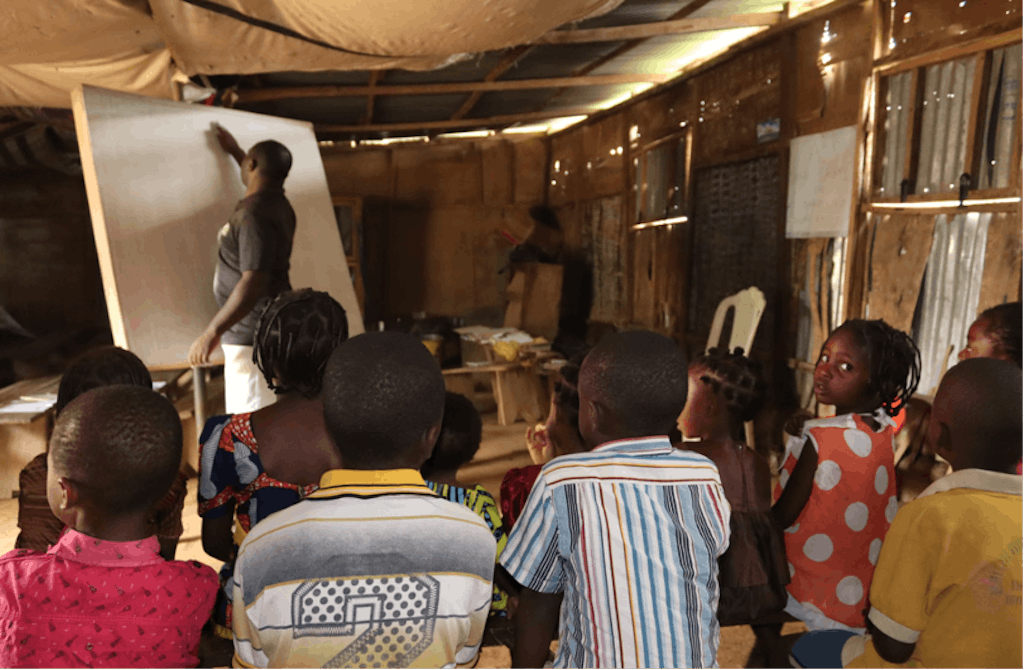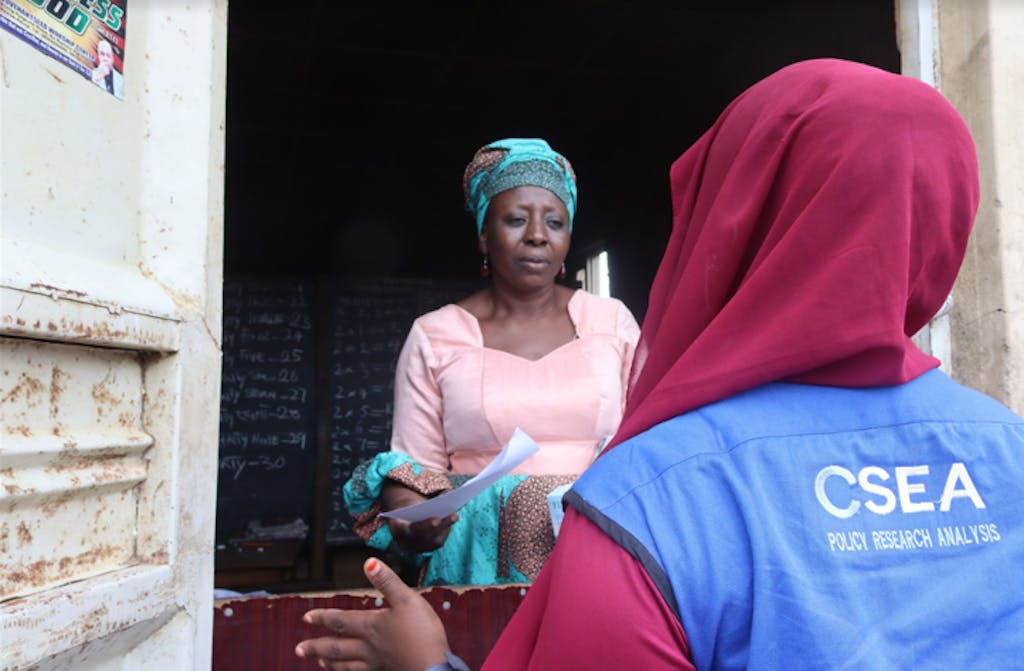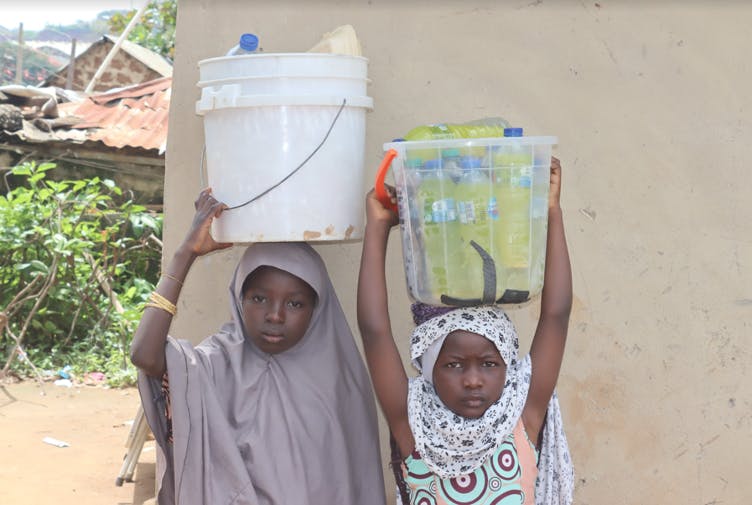In Nigeria, kids of poor households are compelled to give up faculty and assist their households as COVID-19 leaves their dad and mom jobless. It’s simply one discovering of an education examine by the Centre for the examine of the Economies of Africa, an Abuja-primarily based suppose tank and a member of the Southern Voice community of evaluation organizations.
In Abuja, 14-12 months-outdated religion not attends faculty as a outcome of her household can’t afford it anymore. instead, she now sells peanuts alone on the highway, collectively with her mom consistently fearing for her safety. religion is an astute pupil whose coach describes her as one in every of her most interesting. She goals of altering proper into a well being care supplier inside the tip.
As one in every of many staff members conducting a two-month examine on education in Nigeria on the Centre for the examine of the Economies of Africa (CSEA), I met religion and her mom at a gathering of teachers and low-earnings dad and mom and kids. ladies inside the room sobbed quietly, one after the fully different, as they informed me about their waning means to bear the prices of primary education for his or her kids as a outcome of the COVID-19 pandemic started. The disaster has compelled their kids to deal with work, equivalent to promoting meals, to complement already scarce earnings. The gravity of this draw again dawned on me: It defies the extremely effective maternal resolve for the safety and development of a toddler.
There are simply tens of millions of tales very similar to religion’s throughout Nigeria, and tens of millions of kids who not have entry to education. greater than ever, the achievement of Sustainable development purpose 4 (extreme quality education) is in peril on this nation. whereas faculties throughout the nation are reopening, many kids whose dad and mom might have misplaced jobs consequently of COVID-19 lockdown gained’t be going again to class in a rustic with an instructional system that was already struggling. The pandemic has elevated poverty in Nigeria, Africa’s most populous nation and one in every of its most unequal. And it has weakened already low demand for — and entry to — extreme quality education.

We launched our evaluation undertaking in August 2020. The goals had been to discover the diminished demand of folks looking for education for his or her kids and to test strategies to mitigate and restore the instructional losses of the previous months. to start to deal with this draw again, CSEA chosen seventy three private faculties in Abuja and paid for underprivileged kids at these faculties to get hold of supplementary instructing to assist fill the hole.
Unemployed dad and mom, working kids
whereas distributing questionnaires to people at one in every of many schools, I met Emmanuel, a 32-12 months-outdated former safety guard. His three kids not attend faculty. When Emmanuel misplaced his job in the course of the lockdown, he needed to ship them again to his rural hometown. Since then, his kids have been engaged on his father’s cassava vegetable farm. Hopes of them returning to the metropolis and to highschool are bleak.
“issues had been dangerous earlier than COVID-19,” he mentioned. “Now, issues are so dangerous that i am hardly sure of my subsequent meal. I even have been dwelling with a good friend. I remained inside the metropolis, whereas my household returned dwelling, so as that, hopefully, I can discover one other job right here. up to now, my probabilities aren’t trying glorious. issues are terribly troublesome all-round for the time being.”
I then requested him if he was fearful that his kids, aged 6 to eleven years, can not attend faculty.
“i am very fearful,” Emmanuel mentioned. “there’s little or no I can do regarding the state of affairs, sadly. For now, they should work on the farm so as that they’re going to eat.”
very similar to Emmanuel, virtually half of Nigerians at the second dwell in extreme poverty. and actually similar to him, most of them work inside the nation’s unregulated economic system.

COVID-19 shook the livelihoods of people inside the informal sector to the core. These people now earn significantly decrease than they’d been incomes or have been fully shut out of the labor sector. informal sector staff usually earn their wages on a day-to-day basis. As such, any sustained drop in earnings will quickly restrict their spending to solely primarily the most important wants. sadly, inside the case of the terribly poor, education does not fall beneath that class.
private vs. public faculties
Paradoxically, when poor households ship their kids again to highschool, it is to not the federal authorities-owned faculties, the place education is free. I requested a gaggle of directors of the low-value private faculties chosen for our examine why this was the case. Their response was unanimous: “a lot of these dad and mom desire our faculties.” They defined that these dad and mom desire private faculties for a quantity of causes, collectively with distance, extreme quality, and the further funds usually incurred at public faculties.
That’s as a outcome of, first, the obtainable authorities faculty is largely not shut, and the every day commute turns into an exorbitant value in itself. Second, dad and mom are cautious of the customary of instructing in these usually-crowded public faculties; they’ve extra confidence inside the coach-to-pupil ratio of private faculties. and at final, public faculties cost further fees that will surmount the ultimate prices of low-value private decisions. but, private faculties generate their income solely from pupil enrollment fees, and additionally they too have suffered with pandemic closures and diminished numbers of returning college students, affecting their means to function effectively. the current requirements for hand-washing stations, face masks, and thermometers, as effectively as to the problem of reaching social distancing inside restricted bodily areas, current further monetary factors.
These tales are preliminary snapshots from our education examine. as a outcome of the pandemic continues to unfold, we want to develop sensible, sustainable methods to deal with the challenges that low-earnings Nigerian households are going by way of. COVID-19 has shined a lightweight on the intertwined factors of rising poverty and widening studying gaps inside the nation. As we proceed to be taught from these households’ tales, we hope that they might finish in empathy-pushed movement by policymakers for a society that kids like religion and folks like Emmanuel deserve.
Obinna Obiwulu is a author and documentary filmmaker. His work focuses on development factors in sub-Saharan Africa and creating economies, and the matters of his gadgets are often economically disadvantaged and fully different susceptible teams. As a communications advisor for the Centre for the examine of the Economies of Africa, he has labored extensively with internally displaced individuals and impoverished households in Nigeria on pretty a full lot of tasks.
This story was supplied by Southern Voice, a community of suppose tanks in Africa, Latin America, and Asia that amplifies native information and evaluation in assist of the Sustainable development targets (SDGs). The UN basis companions with Southern Voice to spotlight native SDG tales from throughout the globe.
Featured picture: Obinna Obiwulu

